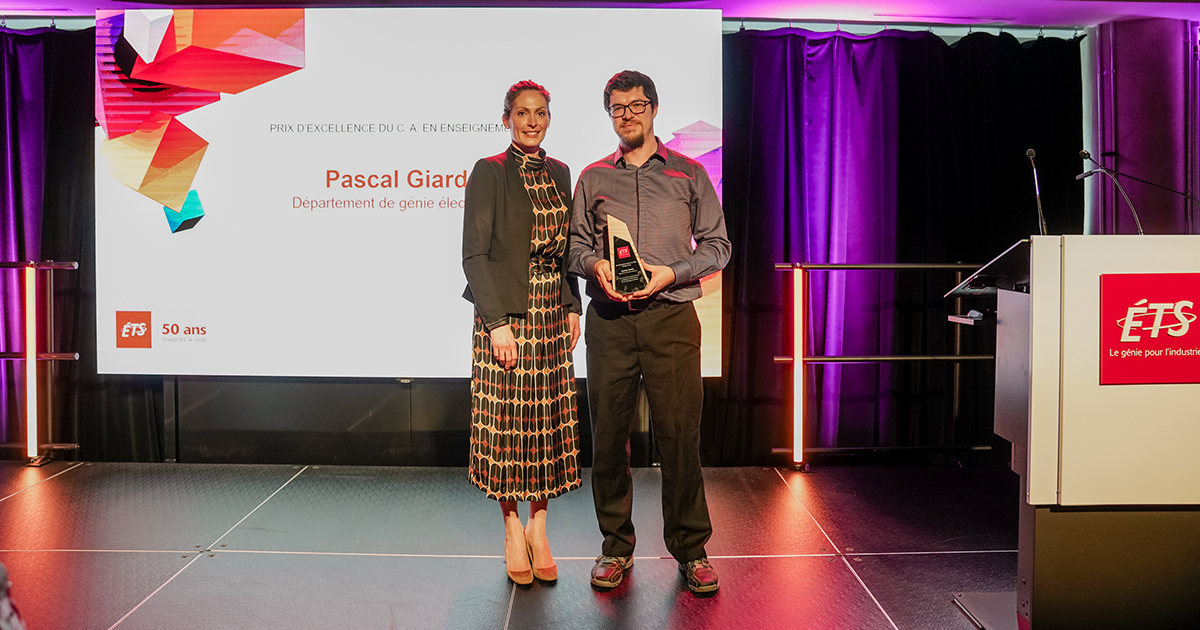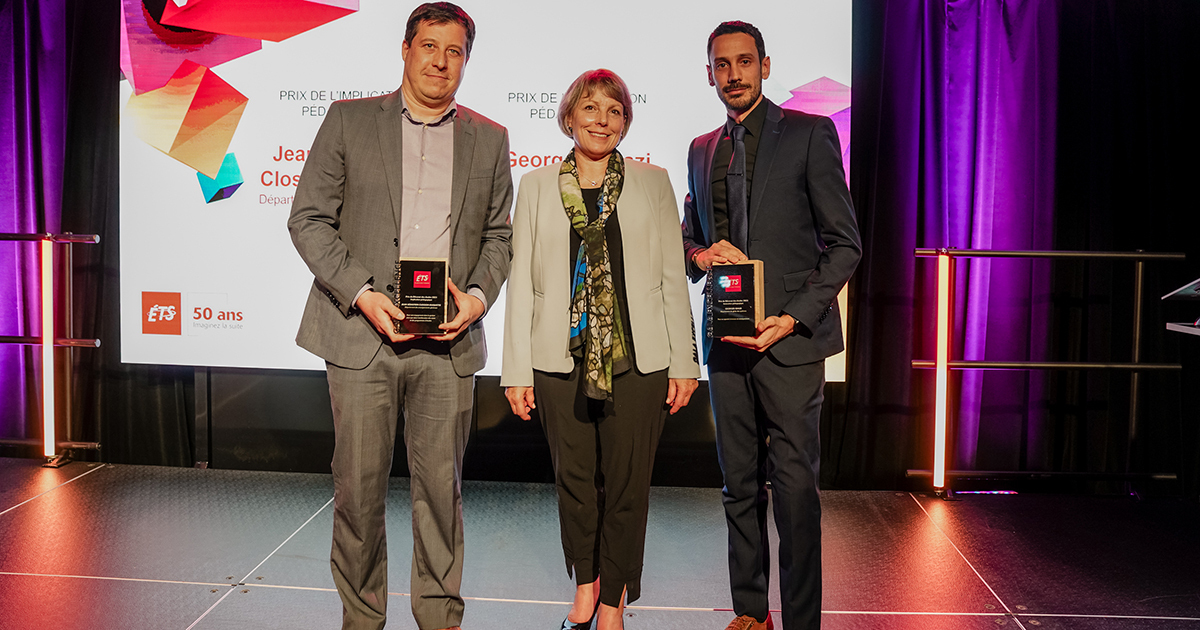Research and Innovation
How do we make our infrastructure resilient to extreme winds or excessive rainfall? How can we diagnose Alzheimer’s disease early? What can we learn from butterfly eyes to improve on photovoltaic panels? These are some of the questions that ÉTS engineering researchers are trying to answer.
Finding solutions to society’s key issues
By finding answers to these questions, ÉTS is seeking to help solve current and future societal challenges, whether on climate action, health and wellness, or security and accessibility.
Its research community of more than 200 researchers and thousands of research-track graduate students is actively involved in the effort to address these challenges. That’s why ÉTS encourages an interdisciplinary and intersectoral approach, so that great ideas can be transformed into impactful solutions.

Meeting the needs of the innovation cycle
ÉTS is a key player in Québec’s socioeconomic development, especially due to its research activities in partnership with private companies, government departments, hospitals, and municipalities. These collaborations culminate in start-ups like Spark Microsystems or EERS Global, as well as innovations that improve the productivity of well-established companies.
Drawing on its research infrastructure and Centech—one of the top 10 business incubators in the world—ÉTS is able to meet the needs of every stage of the innovation cycle, from conception to market launch.
Research that delivers real results
The data speaks volumes—half of the innovations created by ÉTS research units and chairs were taken up by an industrial partner through a technological transfer agreement. In addition, the amounts awarded to ÉTS in grants and research contracts have steadily increased by 11% per year over the past 20 years.
As active and dynamic as ever, ÉTS ranks 15th in Canada in terms of research intensity and 4th among universities without a medical school.






